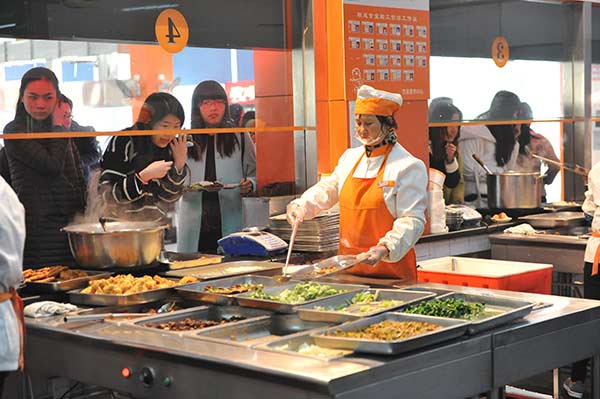While pursuing education overseas can bring about a ton of benefits, managing your finances can be challenging. Don’t let this deter you. From clever accommodation choices to dining hacks and smart transportation decisions, there are practical strategies you can apply to ensure your time in China is as budget-friendly as it is enriching.
Here are the 7 money-saving tips we will discuss in this article:
- Stay in on-campus accommodation such as dormitories.
- If you can’t, consider shared accommodation.
- Eat in on-campus canteens.
- Take advantage of student discounts.
- Use a transportation card or mobile app for discounts.
- Travel by bicycle using bike-sharing apps.
- In your downtime, look for free or low-cost activities.
Accommodation

One of the significant expenses you’ll encounter while studying in China is accommodation. To save money, consider staying in a dormitory on campus. These buildings are often government-subsidized, making them more affordable than off-campus rentals. Typically, you pay per semester rather than monthly, which simplifies your budgeting. Dormitory options may vary depending on your university, so be sure to check out our guide for tips on how to choose the right one.
If on-campus housing isn’t available or suitable for your situation (e.g., non-degree programs), consider sharing an apartment with fellow students or friends. This can significantly reduce your cost of living, especially in areas where studio apartments for single individuals can be costly. Two-bedroom apartments shared by two people often a good choice. An average monthly rent could be around 3,000 RMB, but keep in mind that prices vary by city and location.
Dining

Eating at on-campus canteens can be a wallet-friendly choice. Many universities offer various canteens serving different types of Chinese food. While it may not always be Western cuisine, embracing Chinese food can lower your meal expenses and introduce you to a broader culinary experience. Canteen meals are incredibly affordable, with a large tray of food costing around 8-10 RMB. This is a significant saving compared to dining at restaurants off-campus.
Student Discounts

As a student, you’ll receive a student ID card, which can be your ticket to savings. Many attractions, museums, and even some restaurants near the university offer student discounts. In some cities, you can also enjoy reduced public transportation fares using your student ID. Always inquire about student discounts before making a purchase to maximize your savings.
Transportation

Optimize your transportation choices to save both time and money. Instead of using cash for every metro or bus ride, consider using a transportation card or mobile app. These options often offer small discounts on fares. Additionally, explore bike-sharing apps, like Ofo, which can provide unlimited rides for a fixed monthly fee. This is a cost-effective way to get around, especially if you rely on bikes frequently (and you’ll get fitter as a bonus) .
Activities

While studying in China, you’ll want to explore beyond the classroom. However, constantly paying for attractions and restaurants can add up. Look for free or low-cost activities like local museums with free entry. This is an excellent way to learn about Chinese culture and history while saving money. Furthermore, explore nature escapes and hiking routes in and around the city, ideal for picnics with friends and a budget-friendly way to have fun.
Instead of splurging on expensive flights or high-speed trains to major cities, consider exploring smaller cities and villages nearby. You can share a car or take a bus to these destinations with friends, making it a cost-effective way to discover more of China.
Study Abroad in 2024
Studying in China can be an enriching experience both academically and culturally. By implementing these money-saving strategies, you can ensure that your financial concerns won’t overshadow your educational journey. If you have any additional tips or questions, please feel free to leave them in the comments below.
To apply for the 2024 intake, log in or register for an account to submit your application for your favourite programs.
- Prepare for the Future with Artificial Intelligence or Computing Programs at United International College (UIC) - December 10, 2024
- Juggling Life’s Commitments: Tips from a TIEMBA Alumna and Working Mother - October 19, 2024
- How TIEMBA Alumni are Making an Impact in the World - October 3, 2024
